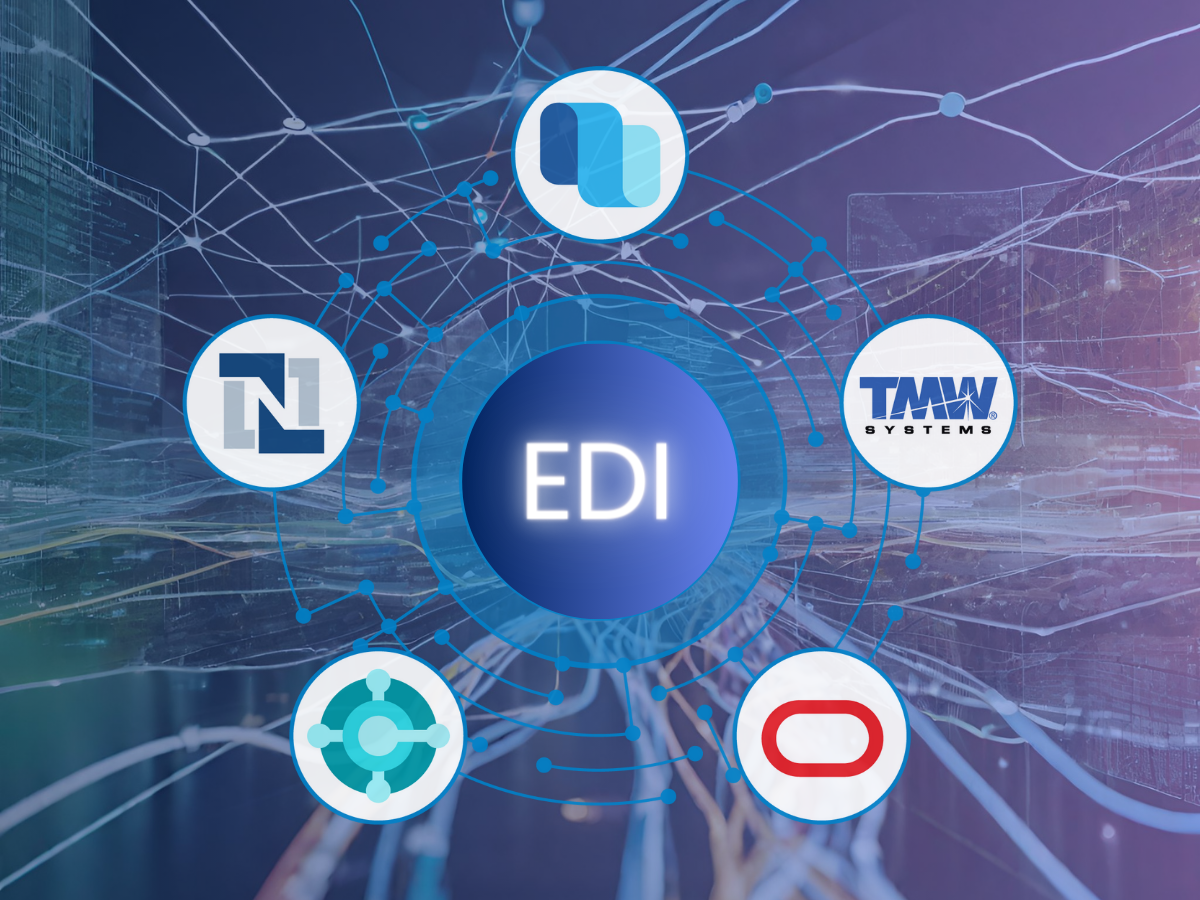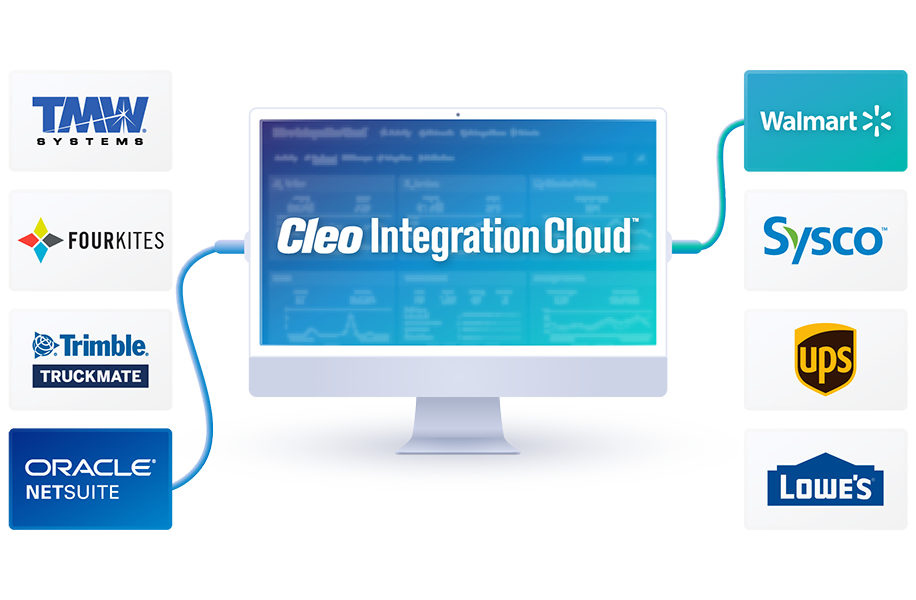Maximizing the Value of Your Microsoft Dynamics ERP with EDI Integration

When discussing the core technologies of a successful organization, Microsoft Dynamics 365 often emerges as a leader.
The ERP acts as a single source of truth that communicates with other systems, applications, and trading partners, and centralizes all relevant data. ERP modernization has been one of the hottest conversations as of late.
So whether you are looking to get more out of your Dynamics investment, looking to upgrade your current ERP to Dynamics 365 SCM or Dynamics 365 BC, or thinking about implementing your first ERP, you’re on the right track.
But before you take action, it’s important to determine how to truly maximize its potential. To unleash the full power of Microsoft Dynamics 365, using Electronic Data Interchange (EDI) integration is not just beneficial—it's essential.
The Benefits of Combining Microsoft Dynamics 365 and EDI Integration
Imagine having a state-of-the-art ERP system like Microsoft Dynamics 365, yet still grappling with inefficiencies, siloed data, and manual processes. You’re not alone.
Many companies face these challenges daily, but what if there was a way to seamlessly connect Dynamics 365 to all your business-critical applications, eCommerce platforms, and external trading partners? Enter EDI integration.
Some of the key benefits of a Microsoft Dynamics 365 EDI integration include seamless operations, breaking down functional silos with EDI integration, and eliminating key man dependency. Let's discuss these further.
Seamless Operations
One significant advantage of EDI integration is its ability to say “yes” to any external trading partner mandate. This isn’t just about compliance on your end; it’s about elevating your customer experience.
When your Microsoft Dynamics ERP is fully integrated, it can effortlessly communicate with external systems, orders are processed faster, errors are minimized, system uptime increases, and your customers are happier.
Imagine the competitive edge this offers your business over the other businesses on the market who consistently have trouble maintaining connections.
And keep in mind, trading partners routinely change their integration requirements, so look for a tech vendor that stands out among ERP integration providers and EDI providers to ensure regular compliance updates so your business can meet evolving B2B requirements.
Breaking Down Functional Silos with EDI Integration
Often, businesses operate in silos—e.g. sales doesn’t talk to supply chain operations, and eCommerce data is hidden from finance. This disjointedness not only hampers efficiency but also stifles growth.
With EDI integration, your Microsoft Dynamics 365 ERP becomes the central hub that connects all these disparate functions.
By breaking down these silos, you ensure that information flows freely across departments, teams, trading partners, and applications, creating more informed stakeholders, improving decision-making, and increasing business agility.
For example, if you’re a manufacturer that sells on eCommerce platforms and online marketplaces, with EDI you can automate order fulfillment (order-to-cash), inventory updates, and customer communications—all from within your Microsoft Dynamics system.
This level of integration removes bottlenecks and accelerates business processes.
Eliminating Key Man Dependency and Reducing Errors
In many organizations, specific processes or systems are managed by a single person.
What happens if that person is unavailable? Or worse, leaves the company?
Key man dependency is a significant risk that can lead to operational disruptions, especially when it comes to manual data processing, order fulfillment, and communication with supply chain partners.
EDI mitigates this risk by:
- Integrating Microsoft Dynamics 365 with your ecosystem of internal and external applications and systems
- Automating data exchanges between Microsoft Dynamics 365 and your integrated ecosystem of applications and systems
This ensures continuity regardless of personnel changes since EDI technology can largely run itself with little human interference, especially if outsourcing to a third-party managed services provider.
Moreover, manual data entry is fraught with errors.
Every keystroke is a potential mistake waiting to disrupt your operations. EDI automation reduces these errors by streamlining data flows between systems, ensuring that your information is accurate and up-to-date.
EDI automation isn’t just about efficiency; it’s about reliability and trustworthiness in your business operations.
How Cleo Can Help with Your Microsoft Dynamics ERP Integration
Cleo offers robust solutions for integrating EDI with your Microsoft Dynamics 365 ERP. From our flagship solution, Cleo Integration Cloud, to our flexible managed service options, Cleo offers our customers:
- Pre-built Integrations: No coding—leverage out-of-the-box integration solutions that you can easily customize to connect your ecosystem and back-office enterprise systems—available for both Dynamics 365 Business Central (D365 BC) and Dynamics 365 Supply Chain Management (D365 SCM).
- Faster Trading Partner Onboarding: Get 10x faster trading partner onboarding by leveraging the Cleo Network and pre-built EDI and API integrations.
- Flexible Managed Services: Choose between our fully self-service approach, our managed services team of experts, and our unique blended approach.
- Business Processes Automation: From order processing to inventory management, Cleo’s EDI (and API) integration capabilities allow you to automate key functions.
- Any-to-Any Integration: Create complete B2B integration flows to any trading partner, ERP, TMS, WMS, or other back-office systems.
- Enhanced Data Visibility: Gain real-time insights into your operations with a unified view of data across all your systems and drill down into any transaction.
- Real-time Notifications: Eliminate the risk of chargebacks or fines from missed transactions, SLAs, KPIs, or business commitments with customizable alerts.
With Cleo, you don’t simply get an EDI provider, you get an EDI partner. Our team of experts has vast experience with technical topics including EDI, API, integration, and Microsoft Dynamics 365.
During your EDI implementation and integration projects, we’re here to answer any questions that may arise, provide guidance on best practices, as well as help with setup—so you can maximize your Microsoft Dynamics 365 ERP investment.
By leveraging Cleo’s solutions and services, you can ensure that your ERP system is not just a repository of data, but a dynamic, integrated hub that propels your business forward.
Want to learn more? Connect with Cleo today and discover how seamless EDI integration can unlock the full potential of your Microsoft Dynamics 365 ERP.
Contact us today at sales@cleo.com or +1.815.282.7695 to leverage our expertise and start experiencing the advantages of EDI integration with world-class EDI software. And be sure to explore some of our educational resources through our resource library.

About Cleo

Instantly access demo videos

Comprehensive Guide to Gaining B2B Control

Duraflame Case Study
